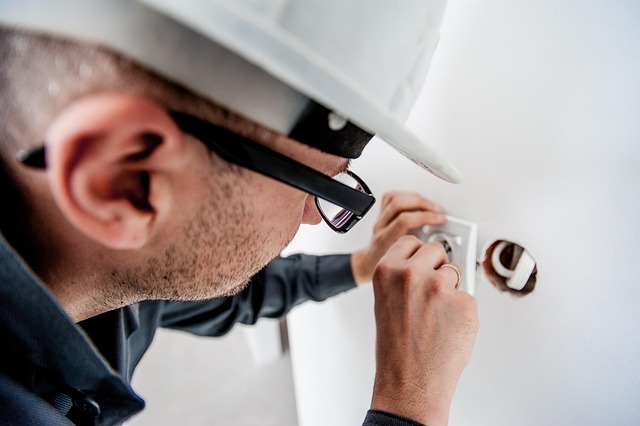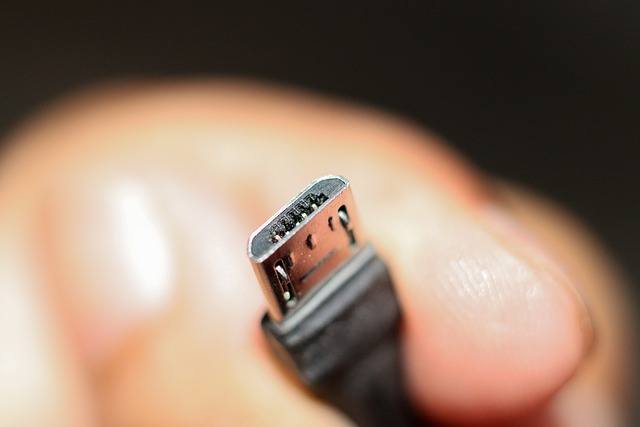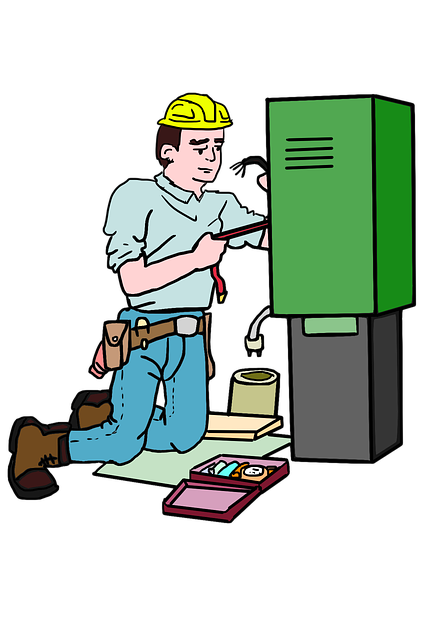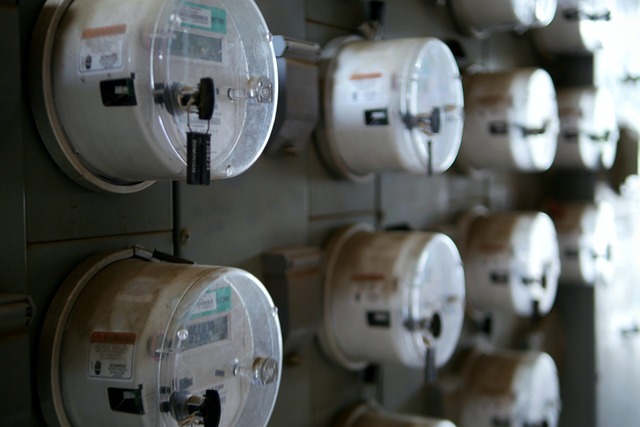Electrical panels, vital for power distribution, require regular inspections and maintenance by qualified electricians to prevent hazardous situations like fires and appliance damage. Homeowners should be vigilant, checking for issues like frequent trips or flickering lights, and consider upgrades for outdated systems to enhance safety and efficiency. Annual professional inspections, monthly at-home checks, and using testing equipment are key to maintaining a safe and reliable electrical system.
“Uncover the secrets of your home’s electrical backbone with our comprehensive guide. Electrical panels, often overlooked, are the unsung heroes of modern convenience. This article navigates the intricacies of these crucial components, equipping homeowners and aspiring electricians with knowledge to identify common issues. From understanding panel function to mastering diagnosis and maintenance, we empower you to ensure safety and efficiency. Discover expert tips on resolving frequent concerns and learn when an upgrade is necessary, all while exploring preventative measures to safeguard your electrical system.”
- Understanding Electrical Panels: Their Function and Common Issues
- Diagnosing Problems: Tips from a Professional Electrician
- Resolving Frequent Electrical Panel Concerns
- Upgrading for Safety and Efficiency: When to Replace Your Panel
- Preventative Measures: Maintaining Your Electrical System
Understanding Electrical Panels: Their Function and Common Issues

Electrical panels, often located in a home’s basement or utility room, serve as the central command center for managing and distributing electricity throughout the building. They consist of circuit breakers or fuses that protect against overloads by interrupting power flow when necessary. Understanding how these panels work is crucial for identifying and resolving potential issues effectively.
Common problems with electrical panels include outdated wiring, faulty connectors, and inadequate capacity to handle modern appliance demands. An experienced electrician may notice signs such as frequent tripping, flickering lights, or overheating during inspections. Prompt attention to these issues is vital not only for the safety of occupants but also to prevent more severe electrical fires or damage to valuable appliances.
Diagnosing Problems: Tips from a Professional Electrician

When it comes to diagnosing issues with electrical panels, a professional electrician offers valuable insights. The first step is to regularly inspect the panel for any signs of damage or loose connections. Look out for burnt marks, frayed wires, or oversized fuses – these could indicate overloading, short circuits, or faulty wiring. A keen eye for detail can often uncover potential problems before they escalate.
Another crucial tip involves utilizing testing equipment. Electricians rely on voltmeters and multimeters to measure voltage, current, and resistance. These tools help identify faulty components like bad capacitors, blown fuses, or short circuits within the panel. Regularly testing and maintaining your electrical panel is key to ensuring a safe and efficient power distribution system.
Resolving Frequent Electrical Panel Concerns

Frequent electrical panel concerns can often be resolved through a combination of troubleshooting and professional intervention. For minor issues like tripped circuit breakers, checking and resetting them is typically the first step. If this doesn’t resolve the problem, it may indicate a faulty circuit breaker or an overload on the system, requiring the expertise of a qualified electrician.
Overheating panels, another common issue, can be addressed by inspecting for loose connections, inadequate wiring, or excessive amperage. Regular maintenance and upgrades to older electrical systems can prevent these problems. In cases where the issue is more complex, such as unusual odors or audible sounds coming from the panel, it’s crucial to contact a electrician immediately to avoid potential hazards like fires or electrical shocks.
Upgrading for Safety and Efficiency: When to Replace Your Panel

Many homeowners often wonder when it’s time to upgrade their electrical panels. This decision is crucial for maintaining a safe and efficient home. An electrician can help assess whether your panel is outdated, overloaded, or simply unable to keep up with modern electrical demands. Look out for signs like frequent circuit breaker trips, old panel wiring, or limited space for new circuits. Replacing an electrical panel is a significant upgrade that can enhance safety by providing better protection against power surges and short circuits. It also ensures your home’s electrical system can handle the increasing energy needs of today’s appliances and electronics, improving overall efficiency.
Preventative Measures: Maintaining Your Electrical System

Regular maintenance is key to keeping your electrical system in top condition and preventing costly repairs. A qualified electrician can perform annual inspections, checking for any signs of damage, loose connections, or outdated components. These visits can identify potential issues early on, ensuring they’re resolved before becoming major problems.
Simple at-home checks can also be done monthly to ensure safety and efficiency. This includes inspecting visible wiring for any signs of wear or damage, verifying that circuit breakers are in good working order, and checking for proper ventilation in your electrical panel. By taking these preventative measures, you can extend the life of your electrical system and reduce the risk of unexpected failures.
When it comes to electrical panels, understanding their function and addressing issues promptly is key. By following the tips outlined in this article, you can effectively diagnose and resolve common problems with the help of a professional electrician. Regular maintenance and timely upgrades, such as replacing your panel when necessary, ensure a safe and efficient electrical system. Remember, a well-maintained electrical panel is the backbone of a secure and modern home or business. So, don’t wait for the lights to flicker—take control and consult an expert electrician today!
